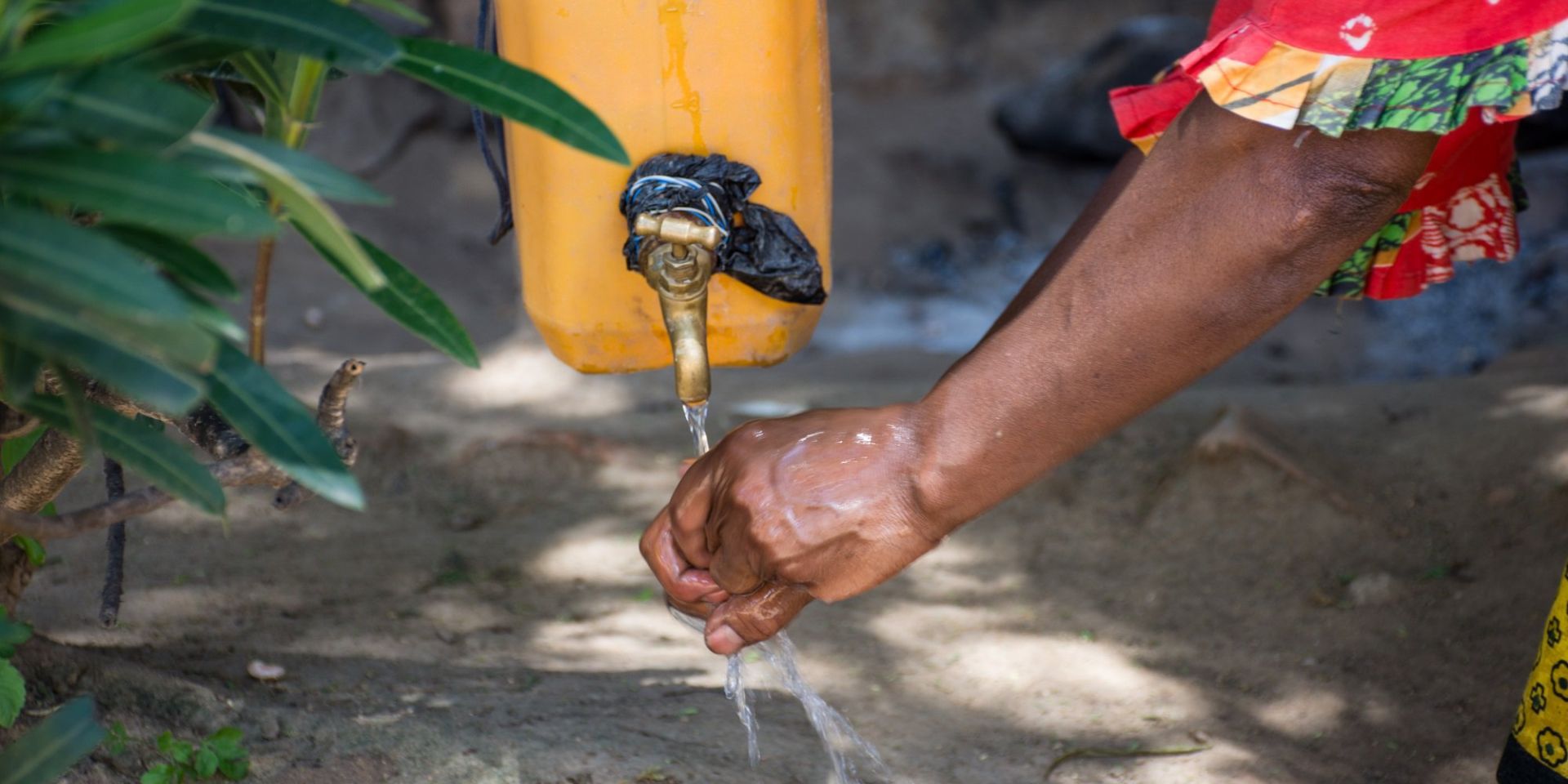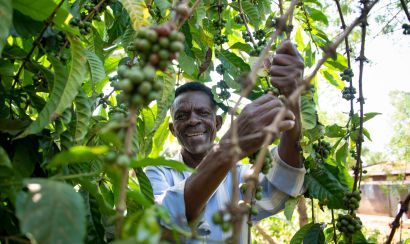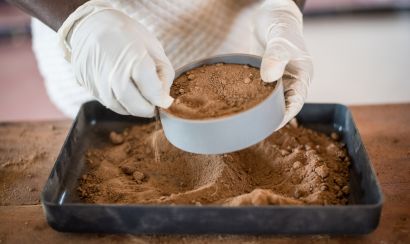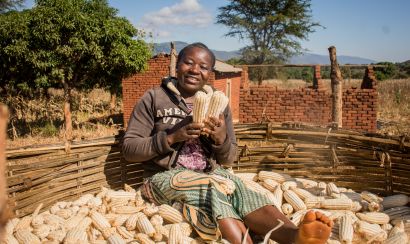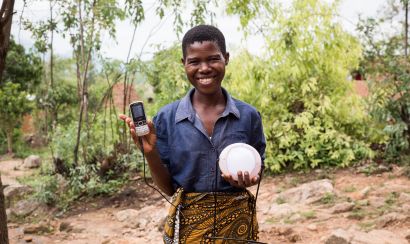From Seed to Soap: Delivering a Health Response to COVID-19
In many of the countries we serve, less than 15 percent of homes have basic hand-washing facilities. This is the first hurdle many communities where we work faced, as governments issued guidelines on handwashing and health practices following the arrival of the coronavirus pandemic. Then the larger scenario presented a two-fold challenge for us: how to keep farming operations going for the one million farmers we directly serve, and keep them healthy and protected from the virus.
In all of the countries we serve, agriculture had been designated an essential service, but for farmers to work unhindered, we needed to incorporate government and World Health Organization guidelines on COVID-19 prevention into our operations, especially in the field. While we are not a health organization, we have deep delivery expertise, trusted community ties, and a profound commitment to putting Farmers First. These are the tools we needed to leverage to be able to respond to the emerging needs of farmers, to ensure they could successfully continue growing food.
Free Soap Distribution to 1 Million Farmers
Farmers can’t continue farming if they get sick, so they need tools to help protect themselves. To wash their hands, farmers needed soap. While we annually deliver upwards of 84,000 tons of farm inputs, soap was a new venture for us.
Our procurement teams reached out to existing and new suppliers to procure some 2.3 million kilograms of soap. To ensure that we got the soap as quickly as possible, we aligned with some of our large-capacity suppliers who committed to drive up production to manufacture as much as 110,000 kilograms in a week to help us meet our target! We then leveraged our newly-bolstered transport networks to deliver the soap to rural areas, at no cost to farmers.
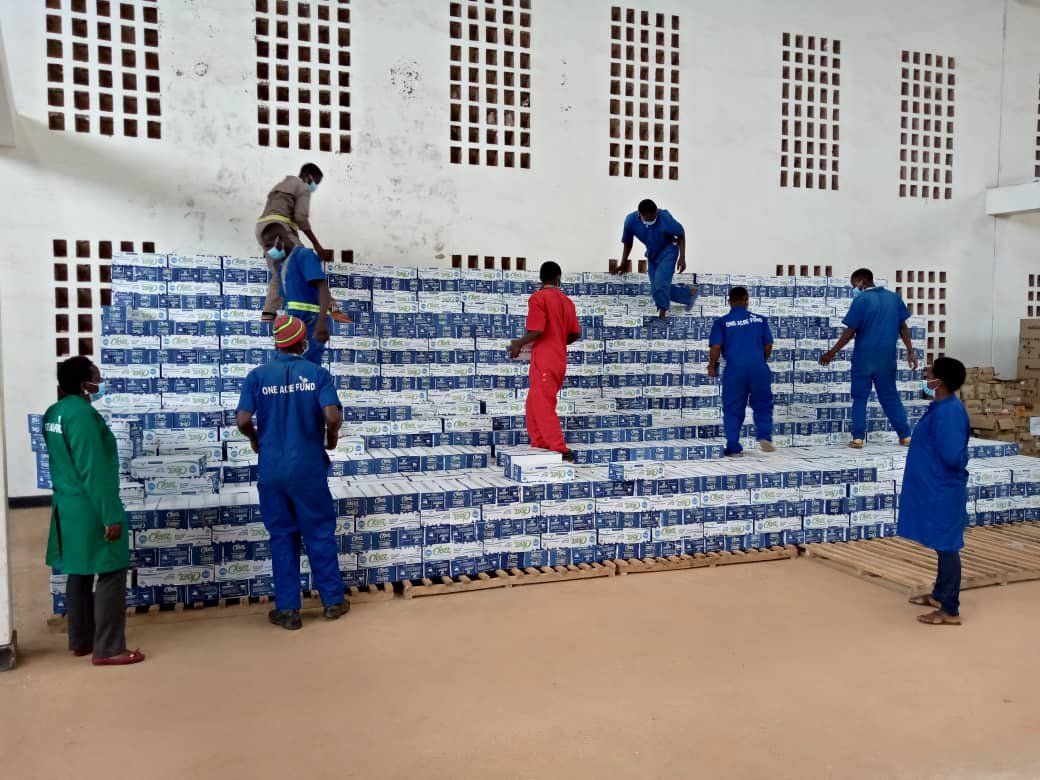
But delivering during COVID came with another new challenge for us to tackle. Traditionally, our delivery model involves groups of 80+ farmers meeting in one spot to receive their supplies. Because physical distancing is also key to our client and staff health, we found a variety of ways to re-envision what drop deliveries needed to look like.
In countries where governments still allowed movement — such as Tanzania and Kenya— we switched from our typical model of mass group distribution to one-on-one home deliveries. In places like Rwanda where movement was restricted, we've held on deliveries, but plan to begin on May 11, using our regional offices as distribution points as the country begins to allow essential movement.
We are now in the process of delivering this free soap in six countries – Kenya, Zambia, Malawi, Rwanda, Burundi, and Tanzania, with goals to reach more than 3 million households, including non One Acre Fund clients. We are also planning to distribute soap in Ethiopia and Nigeria in the coming months.
In the areas where we’ve already begun soap deliveries, farmers say the soap is supporting them in keeping safe during an uncertain time.
“I was shocked to see my field officer come home with soap and a flyer, and told me they were for me from One Acre Fund,” says Pinet Habwanyanya, a farmer from Zambia. “It was such a pleasant surprise! It is touching to know that the organization not only cares that our food needs are catered for, but also concerned for my family’s health and safety.”
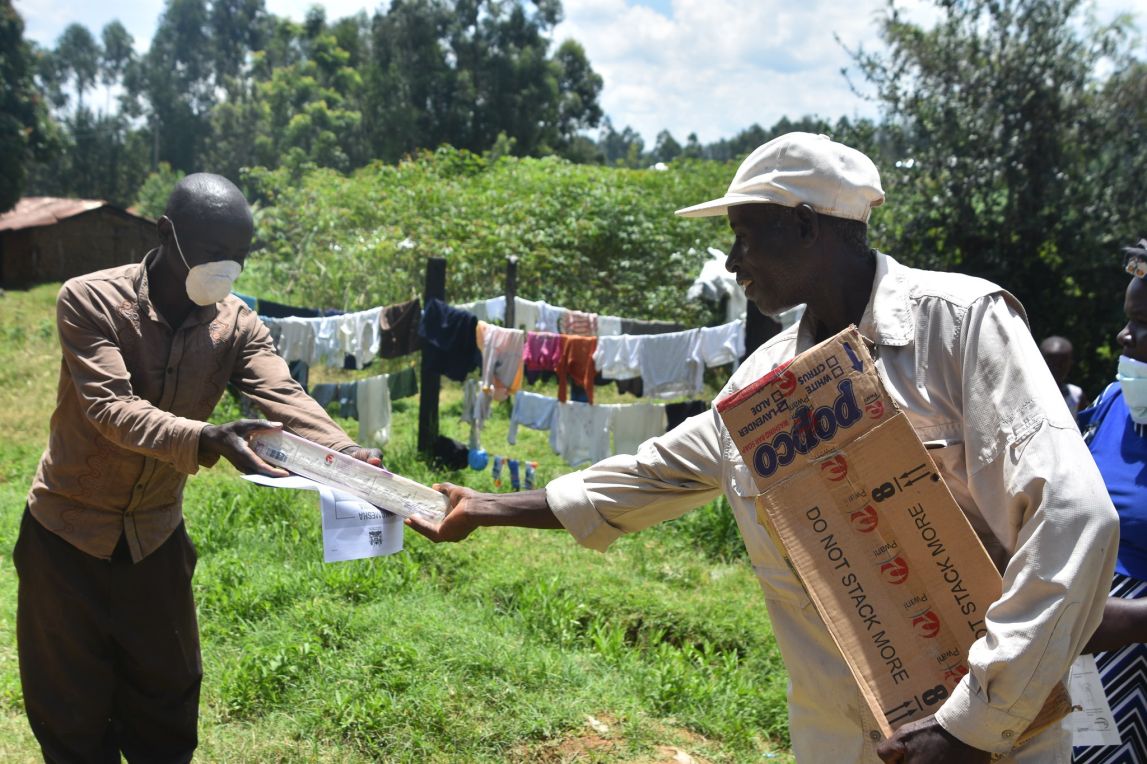
Health Trainings and Masks
Along with ensuring access to clean hands, we also saw an opportunity to deliver information to support farmers in limiting the spread of COVID-19 within their communities. We recognized that our 4,800 field officers could help share vital information about COVID-19 to help keep farmers informed. One of the most important interventions has been to encourage behavior change geared towards physical distancing. Our field staff are actively promoting health best practices in rural areas by modeling physical distancing and training farmers on prevention procedures, COVID-19 symptoms, and what hotlines to call if they get sick.
We also created DIY guides on how to build “tippy tap” hand-washing stations using readily available material. In the absence of taps with running water, these foot-operated devices offer a handwashing alternative, and reduce the risk of transmitting pathogens as the user only touches a bar of soap suspended by a string.
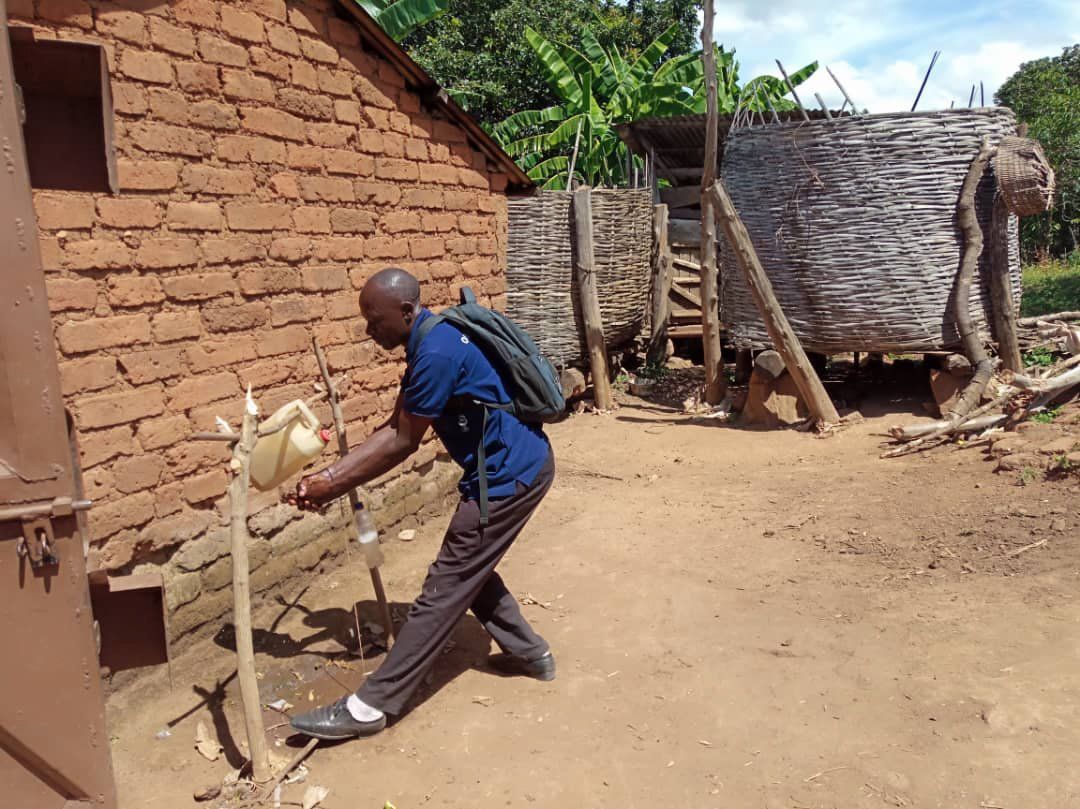
“I first heard of COVID-19 on radio on March 19. I had no idea what it was, or what to do,” says Edouard Kanani, a One Acre Fund farmer from Rwanda. “But three days after the government announced measures to curb spread of the disease, a field officer came calling. He had come to give me health training on the virus. He taught me to wear a mask when interacting with people, to wash my hands with soap as often as possible, and to physically distance. We don’t have masks available in our local market yet, but I know to avoid gatherings, to respect and maintain physical distance, and wash my hands.”
In Kenya, we are collaborating with 30 other like-minded entities under the Safe Hands Kenya initiative to champion the immediate and urgent deployment of protective products such as soap, disinfectants, and face masks. The initiative also provides messaging encouraging hand washing and other important hygiene behaviors.
Finally, we have created flyers and posters in official and local languages that our field officers have posted around their sites to be read from a distance. The same content can also be disseminated through tablets and smartphones.
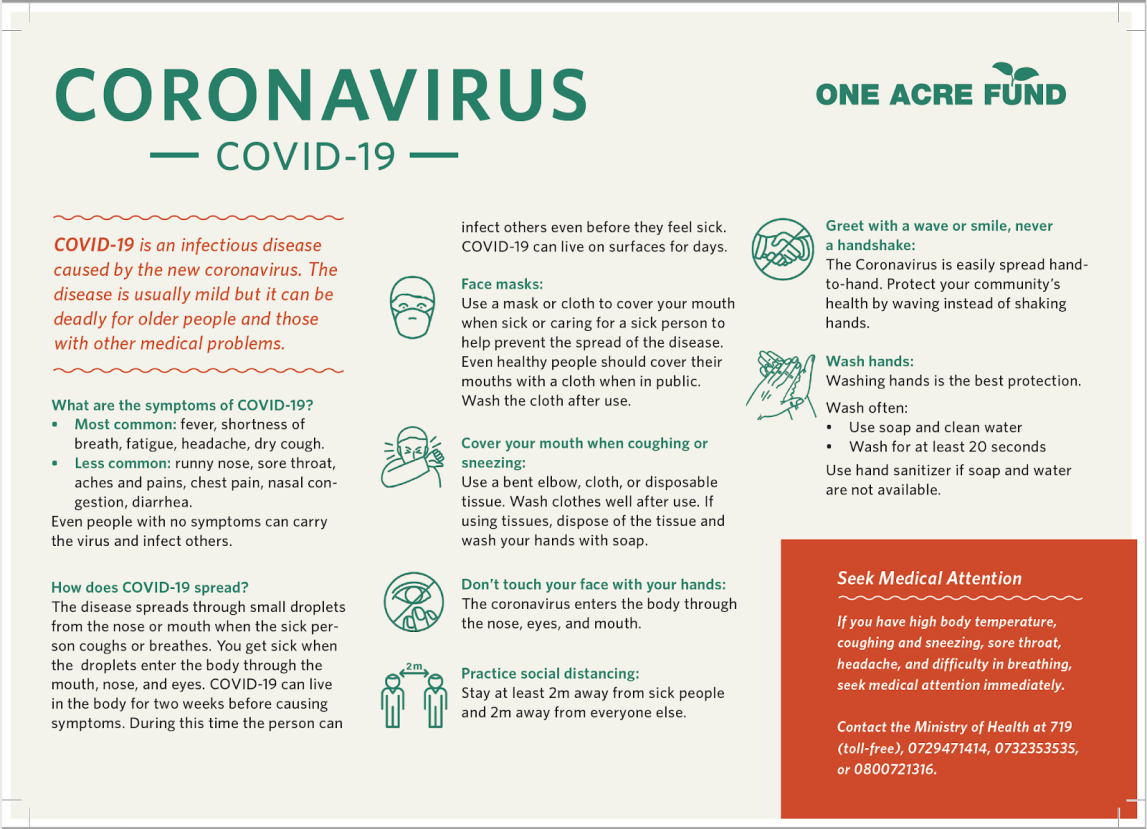
And, as guidelines on masks continue to emerge, we’re working on procuring thousands of washable, reusable masks for all staff who are still allowed to move around in the field, to keep them protected while they engage in field work. In countries where sourcing masks has been challenging or expensive to purchase, we have partnered with local partners to begin making reusable face masks. In at least half of the countries we serve, we’ve trained farmers to make simple masks using fabric at home for themselves and their families.
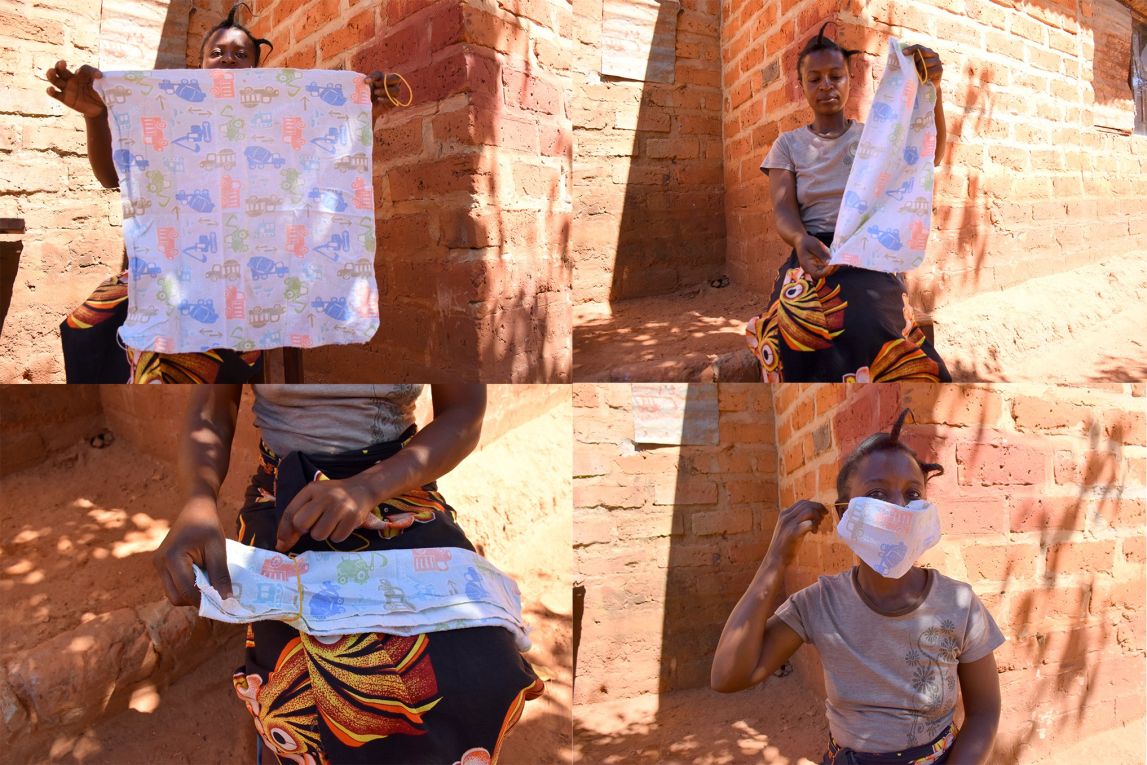
As we assess just how extensively the coronavirus will affect the lives and livelihoods of farmers, we hope to continue to cultivate knowledge of our farmers’ experiences, so we can better plan for the future. We hope to draw from our experiences now to design better support in the future in a continued effort to put Farmers First.
We asked field officers from Kenya and Zambia to share their experiences in how they’re putting Farmers First in the face of COVID-19. Take a listen.
